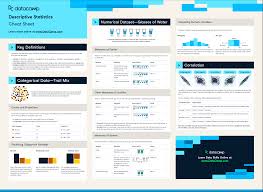Unlocking Business Potential Through Data Analysis Expertise
In today’s data-driven world, the ability to effectively analyse and interpret data is a crucial skill for businesses aiming to gain a competitive edge. Data analysis expertise not only helps organisations make informed decisions but also enables them to uncover hidden opportunities, optimise operations, and enhance customer experiences.
The Importance of Data Analysis Expertise
Data analysis involves examining datasets to draw conclusions about the information they contain. By leveraging advanced analytical techniques and tools, businesses can transform raw data into valuable insights. This process is essential for understanding market trends, consumer behaviour, and operational efficiency.
With the rapid growth of big data and AI technologies, having expertise in data analysis has become more important than ever. Companies that harness this expertise can anticipate market shifts, personalise marketing strategies, and improve product development.
Key Skills in Data Analysis
Data analysis expertise encompasses a range of skills that are vital for extracting meaningful insights from complex datasets:
- Statistical Knowledge: A solid understanding of statistical methods is fundamental for analysing data accurately.
- Technical Proficiency: Familiarity with tools such as Python, R, SQL, and AI platforms is essential for handling large datasets efficiently.
- Critical Thinking: The ability to interpret results critically and challenge assumptions is crucial in drawing valid conclusions.
- Communication Skills: Translating complex findings into actionable insights requires clear communication with stakeholders.
The Role of AI in Enhancing Data Analysis
Artificial intelligence plays a transformative role in enhancing data analysis capabilities. AI algorithms can process vast amounts of data at unprecedented speeds, identifying patterns and trends that might be missed by human analysts. Machine learning models enable predictive analytics, allowing businesses to forecast future outcomes based on historical data.
The integration of AI into data analysis processes not only improves accuracy but also increases efficiency by automating repetitive tasks. This allows analysts to focus on strategic decision-making rather than manual data processing.
The Impact on Business Decision-Making
The insights gained from expert data analysis have a profound impact on business decision-making. Companies can make evidence-based decisions that reduce risk and drive growth. For example:
- Market Trends: Understanding market dynamics helps businesses adapt their strategies to changing consumer demands.
- Operational Efficiency: Identifying inefficiencies within operations enables cost reduction and productivity improvement.
- Customer Insights: Analysing customer behaviour allows for personalised marketing campaigns that enhance customer satisfaction and loyalty.
The Future of Data Analysis Expertise
The demand for skilled data analysts will continue to grow as the volume of available data increases exponentially. Organisations will increasingly rely on experts who can leverage AI technologies to derive actionable insights from complex datasets.
A strong foundation in both traditional analytical methods and cutting-edge AI techniques will be essential for those looking to excel in this field. As technology evolves, continuous learning and adaptation will be key drivers of success in maintaining a competitive advantage through expert data analysis.
Conclusion
The power of data analysis expertise lies in its ability to unlock valuable insights that drive business success. By embracing advanced analytical techniques and integrating AI technologies into their processes, organisations can harness the full potential of their data resources, paving the way for innovation and growth in an increasingly competitive landscape.
Understanding Data Analysis Expertise: Key Questions and Insights for Businesses
- What is data analysis expertise?
- Why is data analysis expertise important for businesses?
- What skills are essential for data analysis expertise?
- How does artificial intelligence enhance data analysis expertise?
- What impact does data analysis expertise have on business decision-making?
- What is the future outlook for data analysis expertise?
What is data analysis expertise?
Data analysis expertise refers to the proficiency in extracting meaningful insights from data through the application of statistical methods, analytical tools, and critical thinking skills. Professionals with data analysis expertise possess the ability to interpret complex datasets, identify trends and patterns, and draw actionable conclusions that drive informed decision-making. This skill set encompasses a combination of statistical knowledge, technical proficiency in tools like Python and SQL, and effective communication skills to convey findings to stakeholders. In today’s data-driven world, data analysis expertise is essential for businesses seeking to leverage their data resources for strategic advantage and operational efficiency.
Why is data analysis expertise important for businesses?
Data analysis expertise is crucial for businesses because it empowers them to make informed decisions based on accurate insights derived from data. By effectively analysing datasets, businesses can uncover valuable trends, patterns, and correlations that provide a deeper understanding of their operations, customers, and market dynamics. This knowledge enables companies to identify opportunities for growth, optimise processes for efficiency, and tailor strategies to meet the evolving needs of their target audience. Ultimately, data analysis expertise equips businesses with the tools to stay competitive in a data-driven world and drive sustainable success through evidence-based decision-making.
What skills are essential for data analysis expertise?
To excel in data analysis, a diverse set of skills is essential. Firstly, a strong foundation in statistical methods is crucial for interpreting data accurately and drawing meaningful conclusions. Technical proficiency in programming languages such as Python or R, along with expertise in SQL, is vital for managing and analysing large datasets efficiently. Familiarity with AI and machine learning tools can further enhance analytical capabilities by enabling advanced predictive modelling. Critical thinking skills are necessary to evaluate results and challenge assumptions effectively. Additionally, excellent communication skills are important for presenting complex insights clearly to stakeholders, ensuring that data-driven decisions are well-informed and actionable. These combined skills empower analysts to transform raw data into valuable business intelligence.
How does artificial intelligence enhance data analysis expertise?
Artificial intelligence significantly enhances data analysis expertise by automating complex processes, increasing accuracy, and enabling the analysis of vast datasets at unprecedented speeds. AI algorithms can identify patterns and trends that might be overlooked by human analysts, providing deeper insights and more precise predictions. Machine learning models allow for predictive analytics, which helps businesses forecast future outcomes based on historical data. Additionally, AI can automate repetitive tasks, freeing up analysts to focus on strategic decision-making and interpretation of results. This integration of AI not only improves efficiency but also empowers organisations to make data-driven decisions with greater confidence and precision.
What impact does data analysis expertise have on business decision-making?
Data analysis expertise plays a pivotal role in shaping business decision-making processes. By leveraging advanced analytical techniques and tools, organisations can transform raw data into actionable insights that drive strategic choices. Expertise in data analysis enables businesses to make evidence-based decisions that reduce risks, identify opportunities, and improve operational efficiency. Understanding market trends, customer behaviour, and internal operations through data analysis empowers companies to adapt swiftly to changing environments and stay ahead of the competition. Overall, data analysis expertise equips businesses with the knowledge and confidence needed to make informed decisions that lead to sustainable growth and success.
What is the future outlook for data analysis expertise?
The future outlook for data analysis expertise is exceptionally promising, as the demand for skilled analysts continues to rise in tandem with the exponential growth of data generation. As businesses increasingly recognise the value of data-driven decision-making, the need for professionals who can skilfully interpret and leverage complex datasets becomes paramount. Advancements in artificial intelligence and machine learning are further transforming the landscape, enabling more sophisticated analyses and predictive modelling. Consequently, individuals with expertise in these areas will find abundant opportunities across various industries. Continuous learning and adaptation to emerging technologies will be essential for maintaining a competitive edge, ensuring that data analysts remain at the forefront of innovation and strategic business development.






